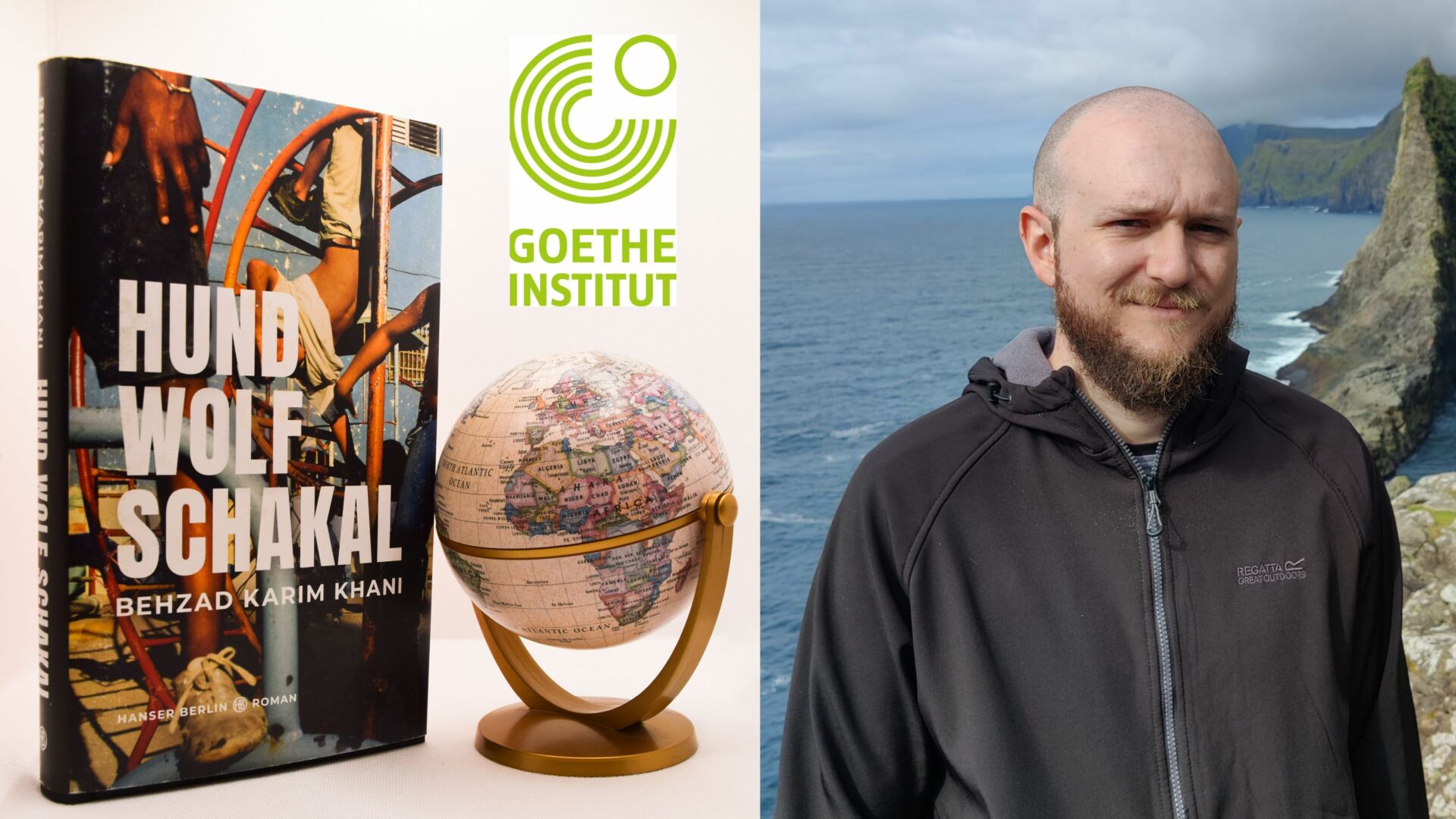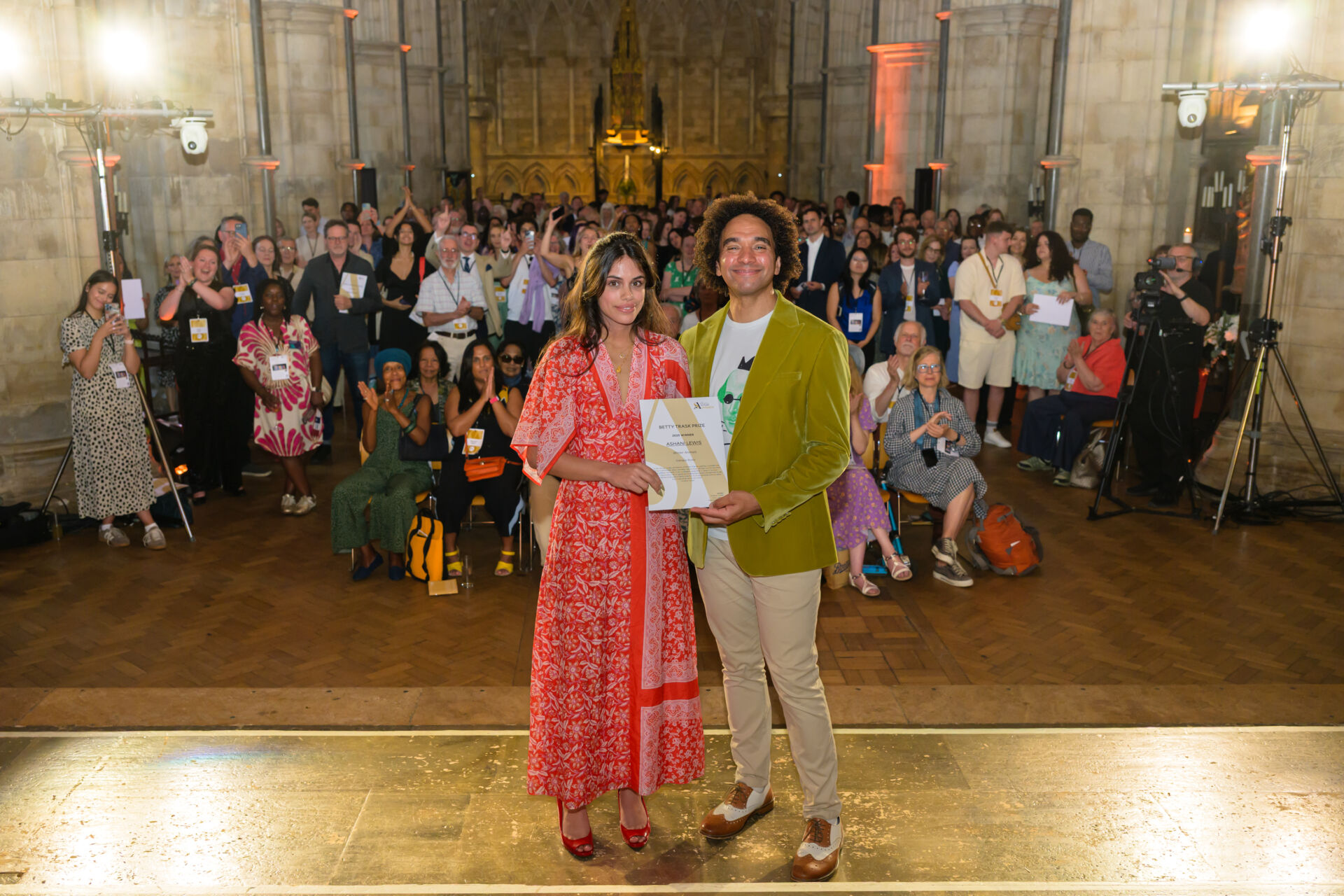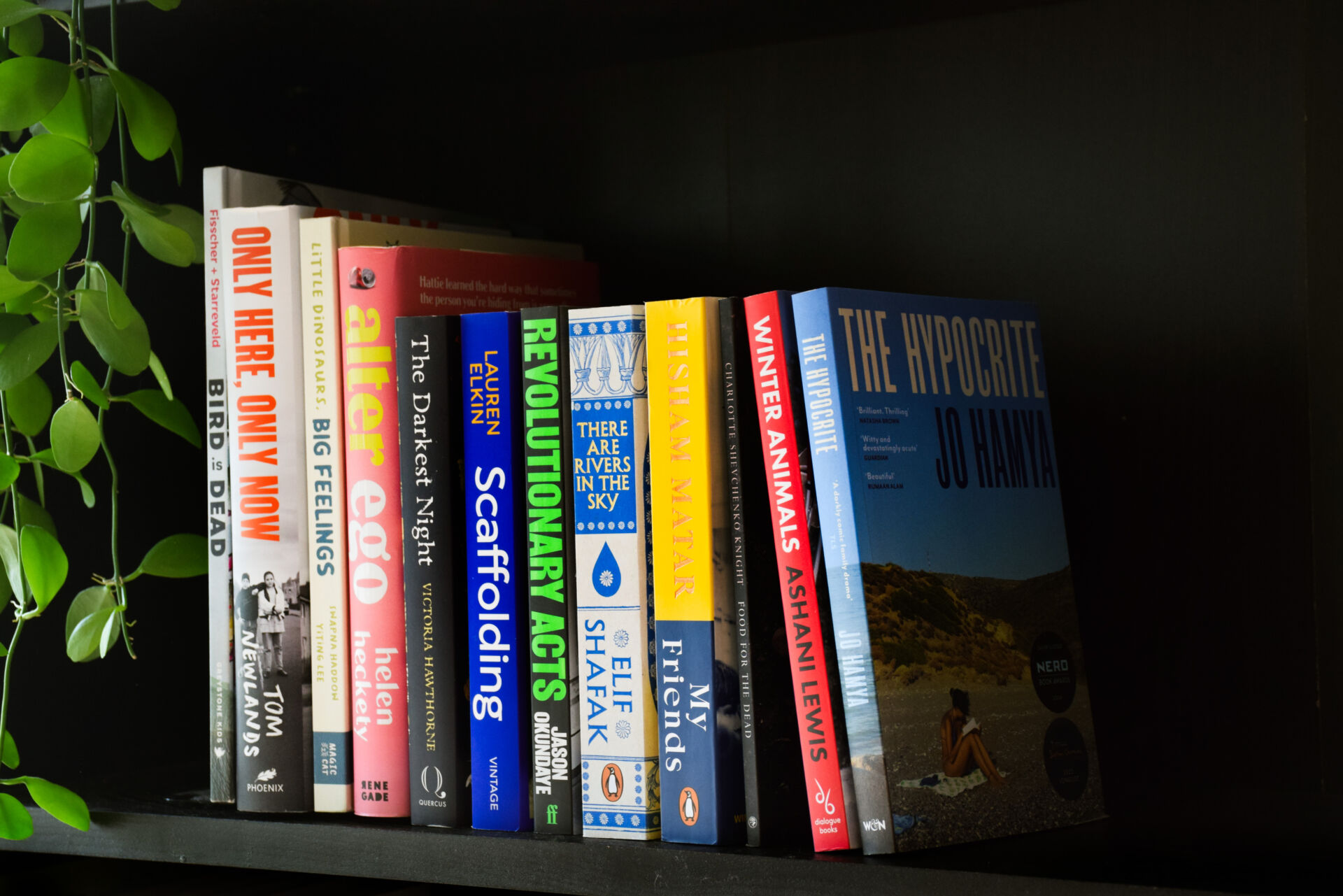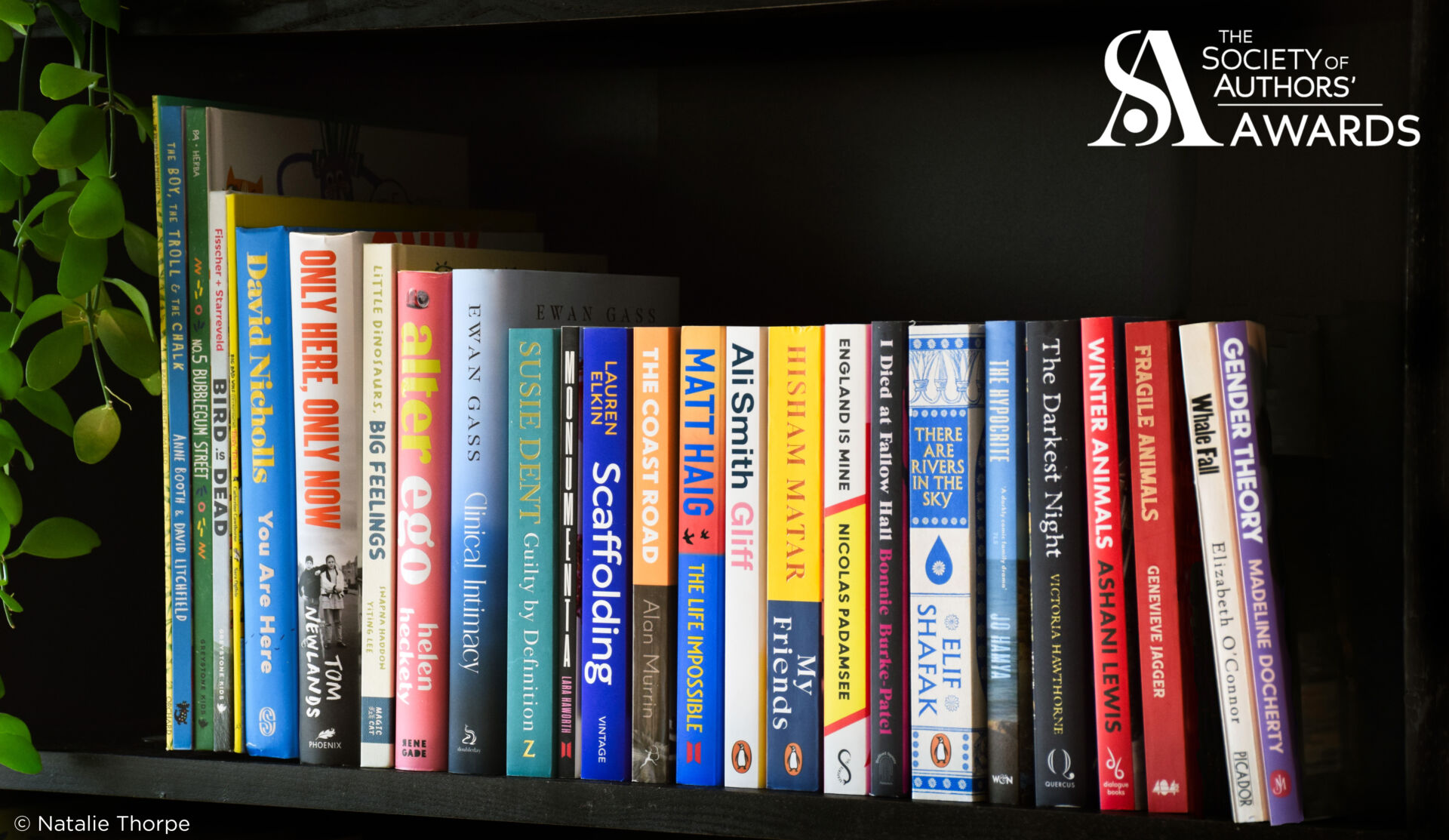The Goethe-Institut Award for New Translation is presented by the Society of Authors and the Goethe-Institut. It is awarded every two years for a translation of an excerpt of a novel; this year, translations were of Hund Wolf Schakal by Behzad Karim Khani (Hanser Berlin).
You can read Rob Myatt’s winning translation below.
Huge congratulations on being the 2023 Goethe-Institut Award winner! The award is for emerging translators, but is this the beginning of your journey? What brought you to translation and what does it means to you?
I’ve been translating commercially since 2014 but it’s only been in the last few years that I’ve started to ‘emerge’ more as a literary translator as well. I initially started out part-time alongside further studies but I quickly realised how enjoyable it was and began to get a good stream of work, so I switched to full-time quite quickly. For me, all translation, and especially literary and creative translation, is a great way of building bridges between different communities that might not otherwise come into contact. In a world that feels increasingly polarised, literature can remind us about the many shared human experiences that traverse borders and languages. Being a part of that is hugely rewarding.
The judges praised your translation by saying it ‘write[s] the next chapter of the life of a book originally published elsewhere’. What was your creative experience of translating the piece? Did your translation bring any personal or contemporary influences to bear on the text?
It was certainly a translation that went through a lot of drafts of varying creativity. As translators, we inevitably all have our own voices and I don’t believe there’s such a thing as a perfectly ‘neutral’ translation but it is always important that we don’t embellish the original text too much. In the first section, in particular, I made lots of my final choices by stepping back and looking at the text as a whole. That’s why, for example, ‘erschöpft’ (which roughly means ‘exhausted’) became ‘drained’ as a call-back to the stream analogy earlier, or why I wrote that the water did not just ‘flow’ but rather ‘trickled’ down from the rich north of Tehran to the south, as my own subtle nod to the fallacy of trickle-down economics.
The Goethe-Institut Award asks for a translation of specific extracts from a text. This year the extracts were from Hund, Wolf, Schakal by Behzad Karim Khani. What was your experience of focusing on individual moments in the text and was it important to think beyond those moments?
I thought the judges did a really good job of picking two very different sections from the book. The first contains these really beautiful descriptions of Tehran and Jamshid’s world where I was working a lot more at a word-level. The second part is much more dialogue-heavy and required a lot more holistic thinking. I read the whole book before tackling the translation (a good tip for other emerging translators from German is to make use of the Goethe-Institut Library for free ebooks!) because it had been on my list for a while anyway. But I definitely think it helped me get a better feel for the author’s voice and especially for the way the characters in the second section talk.
Is it important to be faithful to the original meaning of the words, or do you think the role of a translator goes beyond that?
There’s a saying among translators that we ‘translate meaning, not words’. It’s something I always go back to if I am getting really stuck on a particular word or short phrase. Taking a step back from that micro-level and looking at the text as a whole is often really helpful. It also feels incredibly important to bear in mind in the current conversation around AI and machine translation. Taking each individual word in, say, German and replacing it with an English word that matches the dictionary definition will certainly give you a text in English and if it’s just about getting the gist of something then, of course, these tools can be very useful. But it’s not really translation, at least not in the way any professional translator would describe it. Daniel Hahn gave a talk last year where he noted that what’s so interesting and so challenging about translation is that we take this finished product, then completely break it down, almost destroy it, before reforming it and creating a completely new finished product in our target language. That’s something I really took to heart.
What were the challenges of translating the piece?
One of my favourite things to translate is dialogue. Despite, or perhaps because of that, the second section definitely proved most challenging to me. In my first couple of drafts, the characters were speaking more or less like me: white and middle-class. But these are two working-class guys living in Berlin with ‘Migrationshintergrund’ (one has come from Iran, the other comes from a Lebanese family) and their language needed to reflect that in the translation. It was definitely a risk, especially from an ethical point of view as a white translator translating an author of colour. I do think there is room, albeit not unlimited, for people to translate stories that don’t necessarily reflect their own experiences but it requires a lot of reflection and sensitivity so that we don’t spill over into harmful stereotypes or caricatures. That was definitely the aspect I spent the most time on in my translation.
How did it feel to be selected as the winner by the judges?
It was incredibly gratifying, obviously. When I made the decision about how to translate the dialogue, I knew that it was quite a big risk but that if the judges accepted it, then the pay-off would be huge – and it was!
What would your advice be to other translators who are just starting in the profession?
As clichéd as it sounds, just keep on going! This is far from the first competition I’ve entered. In fact, I previously entered the Goethe-Institut Prize back in 2020 and didn’t get anywhere with it. After I won this time round, I revisited my translation for the 2020 edition and could see just how much I had improved. So, translate, translate, translate – whether it’s samples for books you want to pitch, entries for competitions or just translating for practice. The Project Gutenburg website is a great resource for texts that are in the public domain, meaning you don’t need to worry about obtaining rights or permission first.
What’s next for you?
I’ve just done a couple of paid samples, including one for a Swiss author’s award-winning debut novel. I’ve also got a few other samples up on my website that still need a good home (hint, hint, publishers!). Other than that, I’m still plugging away with some nice juicy legal documents and a few marketing texts.
Rob Myatt has been translating full-time since 2014, working from German, Danish, Swedish, Norwegian, Russian and Polish into his native English. In addition to winning the Goethe-Institut Award, he has been both longlisted and shortlisted for the John Dryden Prize. His translations have appeared in journals such as The Dodge, MayDay, Your Impossible Voice and Turkoslavia and he has worked with publishers such as V&Q, Lenos, Hanser and Granta. He lives in London with his wife, Kasia, and their dog, Kółko.






